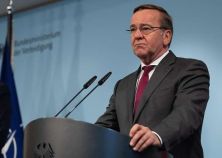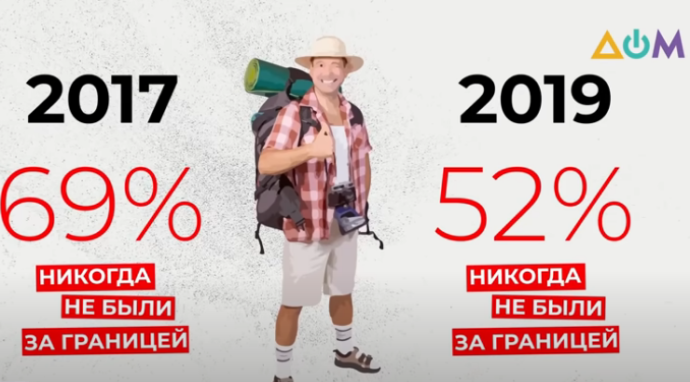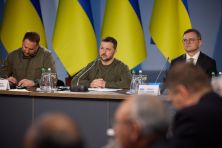In 2017, Europe opened for Ukraine – our country received a visa-free regime. In addition, the year was remembered by the catastrophic explosions of army depots in Balaklia and Kalynivka. In 2017, Eurovision was held in Kyiv for the second time thanks to Jamala’s victory.
We tell about it in the new issue of the documentary series “30 years of Independence” on the UA TV channel.
So, this year begins the Ukrainian visa-free regime with the EU. It took 11 years to begin preparation under President Yushchenko, and which was postponed so often that by early 2017, not everyone believes in it.
A year before the twentieth anniversary, the car of the era is removed from production. In 2017, “Lanos” comes off the assembly line of the Zaporizhzhia car plant for the last time. The “evro bliakha” (used cars with foreign registration) movement begins in the country.
“Evro bliaha” is a definite evil. These are cars that do not meet modern environmental requirements, cars that are in an incomprehensible technical condition, and most importantly – they are so old that they do not meet safety standards.
“Evro bliaha” have become slow-moving mines on the roads of Ukraine” – says car expert Serhiy Sukhovskyi.
Between the new “Lanos” for USD 10.000 and a foreign car for USD 2-3.000, the buyer often chooses a cheaper option.
“Our labor force, even in Zaporizhzhia, is much more expensive than similar labor force somewhere in the center of China, and the cars that were imported to us were for some reason cheaper than the cars that we collected at the base” – Sukhovskyi said.
The year 2003 in Artemivsk, the year 2004 in Novobohdanivka, the year 2008 in Lozova, and the year 2015 in Svatovo are a list of the largest fires in weapons depots. And in recent years, more than ten. These are old, Soviet Union accumulations – most warehouses were created when weapons were exported from Eastern Europe after the collapse of the Soviet Union. And the volumes are enormous. If in Artemivsk and Svatovo there were about 3,000 tons of ammunition, in Novobohdanivka and Lozova – more than 90,000. And there were 125 thousand tons. That’s how much was in Balaklia, Kharkiv region. The warehouse explodes in 2017.
It was something like fireworks and bombing at the same time. The first hours, and it all starts at night, the explosions do not subside at all. Without waiting for the evacuation, the locals leave the city as best they can. And yet the dead are there. Even a few days later, the city with the broken houses looks like a front line. The official version of the explosions is sabotage. Although a lot is written about possible violations of the conditions of storage of ammunition.
And literally in a few months – the same thing happens in Kalynivka. The local 80,000-ton arsenal is generally surrounded on all sides by houses and is located just 30 km from Vinnytsia. Those who did not have time to leave are hiding in basements. This time the cause of the fire is called negligence.
In 2017, Ukraine hosted Eurovision after Jamala’s victory.
In general, this year the life of all Ukrainian music is radically changing. The minimum quota for the share of Ukrainian-language songs on radio stations is increased to 30 percent per day.
“Thank God it happened. This should have been done a long time ago” – said Oleh Sobchuk, frontman of the Ukrainian rock group SKY.
In just one and a half years of quotas, more than 50 young performers of different styles and directions, who sing in Ukrainian, appear on the stage. And even famous artists are starting to record Ukrainian-language albums. Language quotas on television increase the production of video clips by six times.













